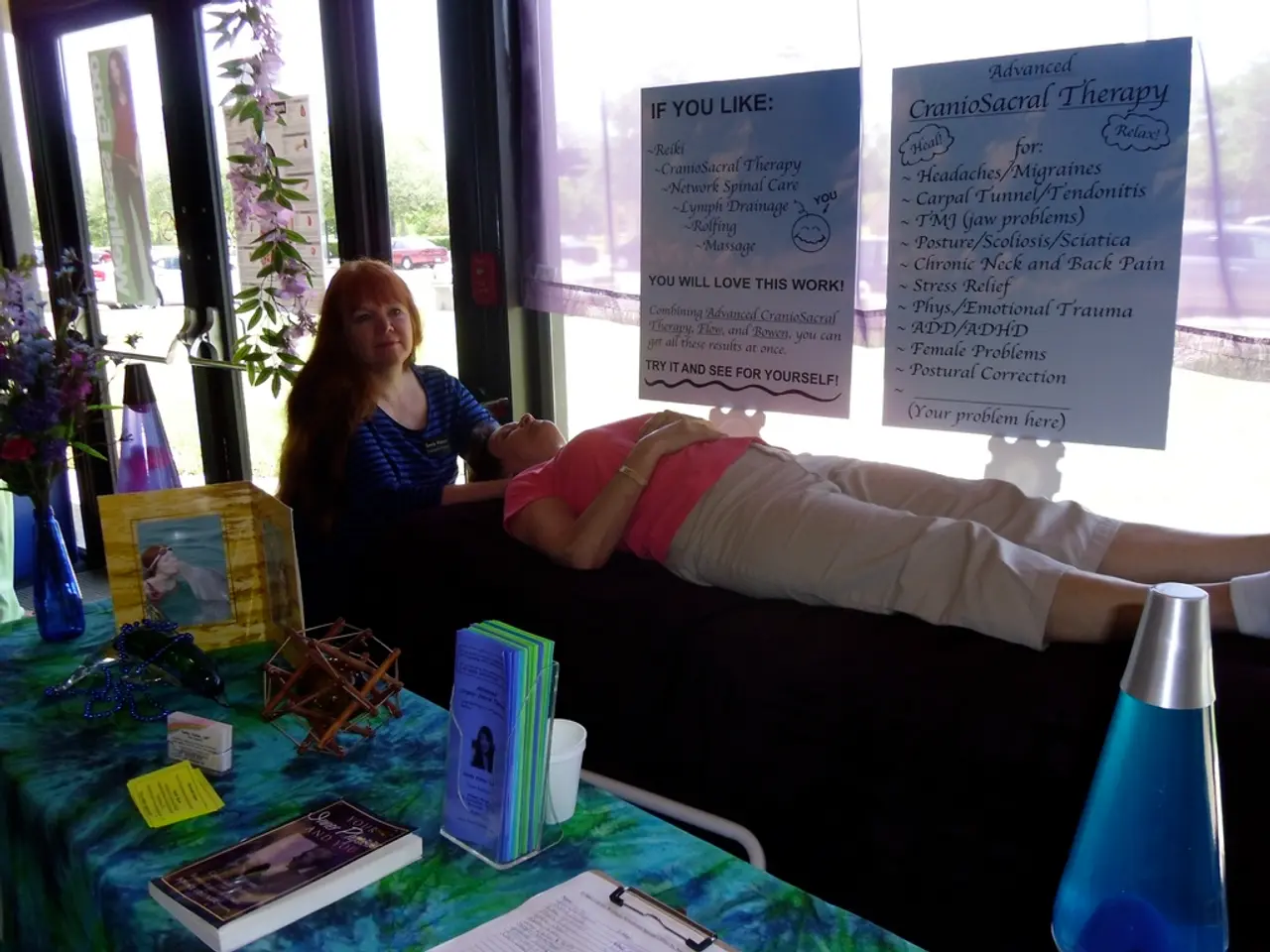Living with Trichotillomania: Olivia Munn Shares Her Personal Struggle
Actress Olivia Munn has bravely shared her personal battles, discussing her struggle with trichotillomania, a condition commonly known as "hair-pulling disorder," and her diagnosis of Luminal B breast cancer in 2024.
Trichotillomania, first described in ancient Greece, is a condition characterized by the recurrent, compulsive pulling of hair from various parts of the body, leading to visible hair loss. Munn revealed that her struggle with the disorder began during her relationship with actor Chris Pine.
The onset of the condition was triggered by a run-in with paparazzi during their time together. Munn explained the short-term pain followed by satisfaction and immediate regret after pulling out hair. The sudden attention from the media became a turning point in Munn's struggle, as she sought help and began her journey towards recovery.
Treatment for trichotillomania primarily includes behavioral therapies such as Cognitive Behavioral Therapy (CBT) and Habit Reversal Training (HRT), often used together for optimal effectiveness. CBT helps individuals recognize and understand the triggers that lead to hair-pulling behaviors, encouraging patients to identify unhealthy cognitive patterns associated with their urges and then adopt healthier behavioral responses to avoid pulling hair. HRT focuses on replacing the hair-pulling behavior with alternative, less harmful actions.
Medication, such as selective serotonin reuptake inhibitors (SSRIs), may also be prescribed to address underlying neurochemical imbalances and reduce associated anxiety or compulsive urges. However, medication alone is usually less effective without concurrent behavioral therapy.
Managing trichotillomania may require a team of medical professionals, including a primary care provider, dermatologist, psychiatrist, and licensed clinical psychologist. Individuals who continue to pull hair into adulthood may experience permanent hair loss. In rare cases, those who ingest the hair may develop a trichobezoar, a hairball that forms in the digestive tract, potentially leading to symptoms such as nausea, abdominal pain, and unintended weight loss.
Trichotillomania is often accompanied by social stigma due to its ability to dramatically alter one's appearance. Munn's relationship with Chris Pine became public after paparazzi captured images of her leaving his apartment. This attention further exacerbated her struggle with the condition.
In 2024, Munn revealed a diagnosis of Luminal B breast cancer, leading her to undergo a double mastectomy. Later in May last year, she shared that she also underwent a hysterectomy to avoid a cancer treatment medication that may cause severe exhaustion. Munn remains open about her health journey, using her platform to raise awareness and provide hope for others facing similar challenges.
Despite these challenges, Munn continues to inspire and empower others through her honesty and resilience. Her courage serves as a reminder that seeking help and support is essential in overcoming personal struggles.
Olivia Munn's revelation about her Luminal B breast cancer diagnosis in 2024 was not the only health battle she bravely shared with the public. Her struggle with trichotillomania, a hair-pulling disorder, added another layer to her health-and-wellness journey. This condition, first described in ancient Greece, results in visible hair loss from recurrent compulsive hair-pulling. Munn's battle with trichotillomania was sparked during her relationship with Chris Pine and worsened under media scrutiny.
Treatment for trichotillomania typically involves a combination of behavioral therapies such as Cognitive Behavioral Therapy (CBT) and Habit Reversal Training (HRT), plus medication like selective serotonin reuptake inhibitors (SSRIs), when necessary. A team of medical professionals, including a primary care provider, dermatologist, psychiatrist, and licensed clinical psychologist, may be required for effective management.
Munn's openness about her health struggles, including her experiences with trichotillomania and cancer, has provided hope and inspiration for others. By raising awareness, she encourages others facing similar challenges to seek help and support, demonstrating the importance of resilience in overcoming personal obstacles.




